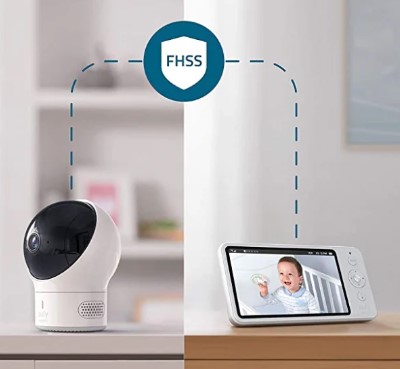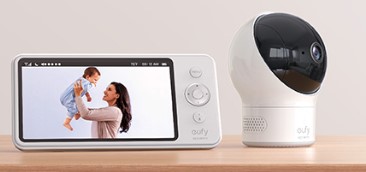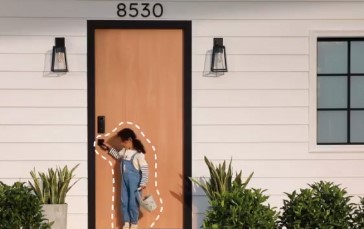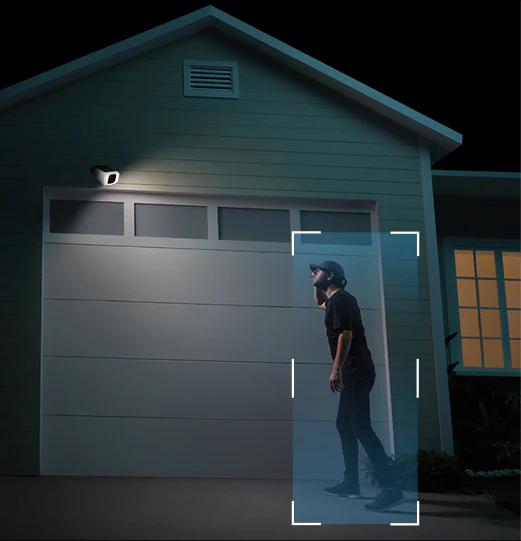Untangling the Choices: Wireless vs. Wired Baby Monitor Cameras
Selecting between wireless and wired baby monitor camera choices is a crucial choice that may significantly affect your parenting journey. Each has advantages and disadvantages of its own. Therefore, it’s important to balance the advantages and disadvantages before choosing. We’ll explore the wired and wireless worlds in this post and help you go through the options to get the best baby monitor camera for your needs.
Flexibility and Convenience of Wireless
Wireless baby monitor cameras have gained popularity for their unparalleled flexibility and convenience. They operate through Wi-Fi, allowing parents to access real-time video feeds on their smartphones, tablets, or dedicated monitors. This wireless connectivity eliminates the need for extensive wiring, allowing the camera to be placed anywhere within the Wi-Fi range.
The flexibility of wireless cameras is particularly advantageous for those who frequently rearrange or travel. Whether you’re moving the nursery furniture around or taking a family vacation, a wireless camera can easily adapt to changing environments. The absence of wires also reduces the risk of tripping hazards, making it safer for parents and little explorers.
It’s essential to consider the potential downsides of wireless technology. Signal interference and connectivity issues can occasionally disrupt the video feed, impacting the real-time monitoring experience. Additionally, reliance on Wi-Fi means a stable internet connection is crucial for optimal performance. Nevertheless, the convenience and adaptability of wireless baby monitor cameras make them a popular choice for many modern parents.

Stability and Reliability of Wired
Wired baby monitor cameras, on the other hand, offer stability and reliability that come with a physical connection. These cameras are typically hardwired to a dedicated monitor or a central hub, ensuring a constant and secure connection. The absence of reliance on Wi-Fi means that wired cameras are less susceptible to signal interference and connectivity issues, providing a more stable monitoring experience.
The reliability of wired cameras is particularly appealing for parents who prioritize a consistent and uninterrupted video feed. Whether it’s a large home with potential Wi-Fi dead zones or concerns about signal security, wired cameras provide a dependable solution. The dedicated monitor or hub also serves as a true connection point, reducing the risk of unauthorized access.
The drawback of wired cameras lies in their limited flexibility. The need for physical wiring can be cumbersome, especially if you plan to reposition the camera frequently. Installation may require professional assistance, and visible wires can impact the aesthetics of the nursery. Despite these considerations, the stability and reliability of wired baby monitor cameras make them a reliable choice for parents who prioritize consistent performance.

Remote Monitoring and Accessibility
One of the defining features of wireless baby monitor camera is the ability to access real-time video feeds remotely. With smartphones or tablets, parents can keep an eye on their little ones from virtually anywhere with an internet connection. This remote accessibility is a game-changer for parents who want the flexibility to check in on their baby while at work, running errands, or simply enjoying downtime in another room.
Wireless cameras often come equipped with mobile apps, allowing easy and intuitive remote monitoring. Whether you’re a working parent or simply seeking the comfort of remote monitoring, wireless baby monitor cameras provide accessibility that wired options may struggle to match.
Security and Privacy Considerations
Regarding security and privacy, wireless and wired baby monitor cameras have their own considerations. Wireless cameras operating through Wi-Fi may be vulnerable to hacking or unauthorized access if not properly secured. Implementing strong passwords, enabling encryption features, and regularly updating firmware is crucial to minimize security risks.
Wired cameras, being physically connected, reduce the risk of external interference or unauthorized access. However, physical wires may pose a security risk if not adequately concealed. Ensure that wiring is well-hidden to prevent tampering or accidental disconnection.
Conclusion
Your decision about wireless or wired baby monitor cameras ultimately comes down to your requirements, priorities, and way of life. A wireless camera might be the best option if portability, ease of use, and remote accessibility are crucial considerations. On the other hand, a connected camera can be more appropriate for your needs if stability, dependability, and a dedicated connection rank highly.
Whichever option you choose, prioritize security measures to protect your child’s privacy. Whether hiding cables for a wired camera or safeguarding a wireless network, being proactive guarantees a secure and safe monitoring experience.
The choice between wireless and wired baby monitor cameras in the ever-evolving realm of parenting technology is personal. Whichever route you decide on, I hope your monitoring experience goes well and gives you the confidence to enjoy all that being a parent has to offer.


